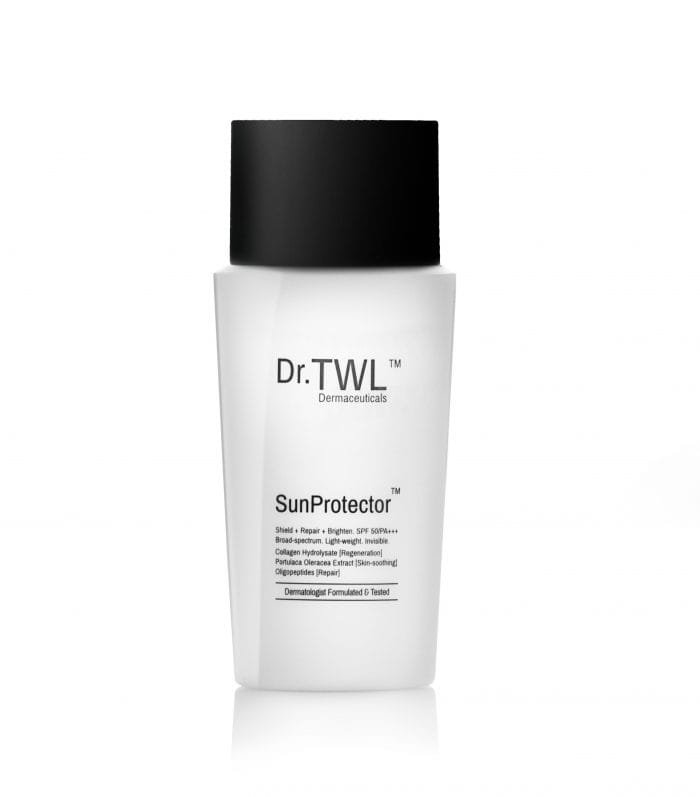
Do I need to see a dermatologist for my skin problem? How about dermatologist recommended products?
That is one of the commonest searched questions relating to visiting a dermatologist in Singapore.
What constitutes a ‘skin problem’? It is best defined in laypersons terms as a visible disorder of the skin that has affected your quality of life. Based on the symptoms of the disease, it’s important to consider that all almost all skin conditions start mild, and they progress over a period of time. Acute dermatological conditions such as rashes related to infections or hives tend to be related to an underlying systemic disorder such as a viral infection. A dermatologist is trained to distinguish between acute and chronic skin problems. He or she can also identify the underlying cause of the skin rashes, and recommend comprehensive care for your condition including the types of products that should be used.
Sudden Red Rashes due to Viral or Bacterial Exanthems
Some helpful screening questions for acute rashes in dermatology would be the presence of fever, coryzal symptoms i.e. cough, runny nose, sore throat. A dermatologist can decide if it is related to the underlying infection or it’s a separate dermatological disorder. Rashes linked to underlying infections are known as exanthems and can be diagnosed with a full blood count, which can show a viral or bacterial infection. If it is due to an allergy, the eosinophils can be raised.
Exanthems are treated symptomatically with a combination of topical steroids, antihistamines, moisturizers and gentle cleansers.
Itchy Red Rashes on the Face and Body
However, one could also have concomitant skin reactivity or sensitivity, known as eczema. There are different forms of eczema under the term dermatitis. Seborrheic dermatitis, atopic dermatitis, perioral dermatitis are all forms of eczema.
If you are struggling with acne that is persistent over a period of several months with more pimples and if you are already an adult struggling with this issue, then you should also visit dermatologists. This is especially so if over the counter medicated creams for acne such as those containing benzoyl peroxide salicylic acid are not working for you. It may be a sign that your acne requires specialist treatment.
In addition, acne causes scarring, that can cause psychosocial distress in the medium to long term. It is important to understand that acne, can cause psychological problems, so it is best to have it treated promptly to minimize further scarring. If you are suffering from eczema and have been using a gentle cleanser and a dermatologist recommended moisturizer for some time without improvement, you should see a dermatologist. This is also because the condition may progress, and you will likely need prescription topical steroids.
Is my skin condition due to my skincare products? Is it bad to use different face products?
Perioral dermatitis in particular looks like hormonal acne, and is sometimes misdiagnosed by non-specialists. It presents as a cluster of red bumps around the mouth area, which may be itchy or painful. The condition can be caused by the use of many different types of products in individuals who like to experiment with skincare. Switching skincare very often, especially products which contain AHAs, BHAs like salicylic acid can be a risk for those predisposed to developing perioral dermatitis. Gentle dermatologist recommended cleansers are best, as opposed to cosmetic cleansers. For makeup removal, micellar water can cause more skin dryness than oil emulsion “milk cleansers” which are gentler on eczema-prone sensitive skin.
In perioral dermatitis, oil-based cleansers can trigger off flareups. Toothpaste can also aggravate the dermatitis. An SLS-free toothpaste, or a mint-free formula can be beneficial. Sunblocks and sunscreens are necessary in preventing sun-induced skin sensitivity. However, certain formulas can trigger off perioral dermatitis. A dermatologist recommended sunblock such as the SunProtector which contains skin soothing anti-oxidant purslane extract (portulaca oleracea), with a combination of both physical block and chemical sunscreen is best for broad-spectrum UV protection in sensitive skin.
Certain brands of chemical sunscreen will irritate sensitive skin. However, pure physical sunblocks tend to leave a whitish cast and have poor cosmetic effect. At Dr. TWL Dermaceuticals, we formulate a sunscreen which is a combination of both physical and chemical block, which does not leave a whitish cast and is dermatologist recommended for rosacea, acne-prone, eczema type skin.
Perioral dermatitis needs to be diagnosed and treated by a dermatologist
Treatment of perioral dermatitis is challenging and usually a course of oral antibiotics, together with topical treatment. It is important for an individual who’s suffering from this condition to visit an accredited dermatologist for accurate diagnosis and treatment. This condition traditionally does not respond well to topical cream management. Skincare moisturizers can actually worsen perioral dermatitis. Traditional dermatologist recommended moisturizers may not work well in patients with perioral dermatitis.
Occlusive ingredients such as mineral oil and paraffin in particular will trigger flare-ups and must be avoided. Preservative-free hyaluronic acid based moisturizers such as the 1% pure hyaluronic acid serum by Dr.TWL Dermaceuticals is prescribed in the clinic for skin conditions such as eczema, rosacea and acne may be better tolerated. It is multi-molecular weighted, which ensures optimal absorption of the serum. Common preservatives in skincare formulations can actually trigger perioral dermatitis, and are not dermatologist recommended.


